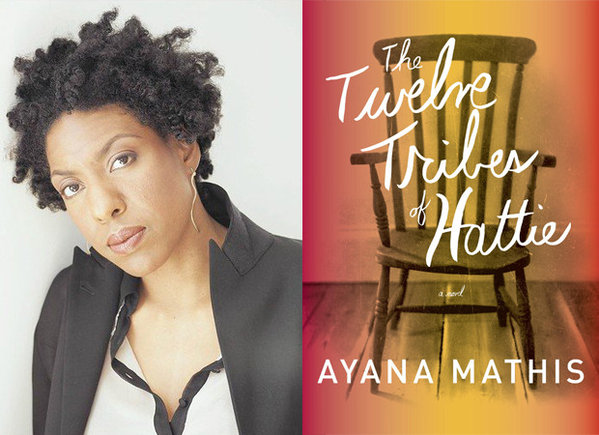Ayana Mathis’ debut novel, The Twelve Tribes of Hattie, is about a young black woman who in 1923 migrates from Georgia to Philadelphia with twin babies who subsequently die from pneumonia; she is deeply scarred by their deaths and goes on to have nine more children “whom she raises with grit and mettle and not an ounce of the tenderness they crave.”
Isabel Wilkerson, author extraordinaire of the epic story of America’s Great Migration, The Warmth of Other Suns, says in her Sunday New York Times review that Mathis’ book is gracefully told, a “brutal and poetic allegory of a family beset by tribulations.” Yet the grief and pathos, says Wilkerson, are non-stop:
“The novel concerns itself with life in its extremes….. Following in a long line of hard-suffering black heroines, Hattie is descended from Etta and Mattie and Ciel in Gloria Naylor’s “Women of Brewster Place,” from Janie in Zora Neale Hurston’s “Their Eyes Were Watching God,” from Lutie Johnson in Ann Petry’s novel “The Street” and from a rocking-chair porch full of humbly and lyrically named colored women hungry for more than their circumstances allow in a world that can’t see them for who they are.
And then there are the depictions of black men:
As for August and the other male characters, they are marked by type rather than depth — the feckless fathers dropping rent money at the juke joint, the tomcatting lovers, the scam preachers, the shadowy sexual predators and the men who, it is both said and intimated throughout, simply wrecked the lives of the women who loved them. “I was the ruin of her,” one of Hattie’s sons admits, speaking of his wife. “I have looked at my father many times and wondered how he could stand knowing he was my mother’s ruin.”
Read the full review here.
Ayana Mathis reads from her new book tonight @ Greenlight Bookstore in BK @ 7:30 p.m. It might be fascinating to see what comes up during the Q&A.
Additional links:


